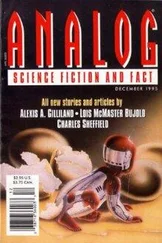Helena said, “It was forbidden.”
The interviewer looked at her. Do you call that a bad experience, she seemed to be thinking. She turned off the tape recorder.
“Rape would have meant one was a person,” Helena might have gone on to say. Or, “There wasn’t that sort of contact.” She has been wondering for years now exactly what it is they all want to hear. They want to know that it could not have been worse, but somehow it never seems bad enough. Only her friend, the commissioner, accepts at once that it was beyond his imagination, and that the knowledge can produce nothing more than a pain like the suffering of laughter — like pleurisy, like indigestion. He would like it to have been, somehow, not German. When she says that she was moved through transit camps on the edge of the old Germany, then he can say, “So, most of it was on foreign soil!” He wants to hear how hated the guards were when they were Slovak, or Ukrainian. The vast complex of camps in Silesia is on land that has become Polish now, so it is as if those camps had never been German at all. Each time she says a foreign place-name, he is forgiven, absolved. What does it matter to her? Reality was confounded long ago. She even invents her dreams. When she says she dreams of a camp exactly reproduced, no one ever says, “Are you sure?” Her true dream is of purification, of the river never profaned, from which she wakes astonished — for the real error was not that she was sent away but that she is here, in a garden, alive.
His failing, as a friend, is his memory. He thinks she has three birthdays a year, and that he has known her forever. They met on a train, in Austria, between Vienna and Salzburg. He thinks she was always famous, but he has forgotten that she was just beginning, barely known, so anxiously dressed that sometimes people thought she was a prostitute. They were alone in a compartment. He sat with his hands on his knees, and she remembers his large cufflinks and his large square ring. He was like the economic miracle not yet at its climax of fat. Or he had been obese a long time ago — she saw, around him, the ghost of a padded man. He talked very seriously about the economic life of every town they passed, as if he knew about it, but the one thing she could recognize, whatever its disguise, was a policeman.
It makes her laugh now to think of the assurance with which he asked his first questions: Are you married? What do you do? Why were you in Vienna? She had been recording a play for a broadcast. She was just beginning, and would travel anywhere, overnight, never first class. She thought he had recognized her — that he had seen her, somewhere, once. The card she gave him, with her name engraved, was new. He studied the card for minutes, and ran his thumb over it absently.
“And in Salzburg you will be …”
“A tourist.” To make the conversation move faster, and to tease, to invent, to build a situation and bring it crashing down, she said, “No one is expecting me.”
“Are you expected anywhere?”
“Not until Monday. I live in Frankfurt.”
He looked out the window for some time. He put the card in his pocket and sat with the tips of his fingers pressed together. “If no one is waiting for you,” he said finally, “you could skip Salzburg and come on to Munich with me. I have some business there, so I would be busy part of the day. But I am free in the evening, and it is a very lively place. We could go to a night club. There is one like a stable; you drink in the horses’ stalls. In the daytime, you could go to a museum. There is a very good museum where you can see ancient boats made out of hide, and you can see the oars. There are guided tours … The guide is excellent! And the station hotel is very good. If you don’t want to, you needn’t leave the station at all. Then we could both be in Frankfurt on Monday. I live there too. No one is meeting me. It wouldn’t even matter if we were seen getting off the train together.”
“What would happen if I went to Munich?” she said. “Would you give me money?”
“I? No.”
“Well, no money, no Munich.”
What went over his face was, Let me straighten this out. I thought you were one sort of person, but it seems you are another. What can this mean?
“Before I get down at Salzburg, I just have time to tell you a funny story,” she said. “It is about paying for things. I heard it when I was a child, in a concentration camp.” How tense they become, she thought. Just say two words and they stiffen, as if they had been touched with the point of a pin. “This is my story. A poor old Jew who was eating his lunch out of a piece of newspaper happened to be sitting opposite a Prussian officer in a train. The train was going to … to Breslau. After a time the officer said, ‘Excuse me, but I want to ask you a question. What makes you Jews so clever, so that you always have the advantage over us?’ ‘Why, it is because we eat carp heads,’ said the old man. ‘And as I happen to have one here, I can sell it to you for thirty marks.’ The officer paid for the fish head, and ate it with some disgust. After a time he said, ‘But I have paid you thirty marks for something a fishmonger would have given me for nothing!’ ‘There, you see?’ said the old man. ‘It’s working!’ ”
Her innocent eyes never left his face. He looked at her, so bewildered, so perplexed. What went wrong in our conversation, he seemed to be saying. Where was my mistake? Why are you telling me this old story? What have I done? He was red when he began to speak. His throat unlocked, and he said, “I never thought I should offer you money, Miss Helena. Excuse me. If I should have, then I apologize. You seem … a woman like you … so educated, so delicate … so refined, like a … Holbein .” All this in his Hessian accent, which she was already recording, in her mind, for her own use.
If she were to remind him now about that man on the train, the commissioner would say, “What a fool! He could have been arrested.” She imagines the commissioner arrested, still on the train, both hands against the pane and his face looking out between them — the anguish, the shock, as the train slid off and he wondered what he had done. “Now do you see?” she would say to him. “Now do you see what they are about — all those misunderstandings? You are that man too.” But he would only know that another injustice had been committed; another terrible mistake.
In their conversations there is only one context. No remark is ever out of the blue. And so, when she leans forward, putting her cigarette out, at the table spread with a pink cloth, and says, “I was never raped,” he does not look surprised. He says, “When you were in those places?”
“Yes. Rape did not occur. It was, in fact, utterly forbidden.”
Putting out the cigarette she seems to lean on it. He knows only one thing, that the crisis is over. He has come through, without being wounded. Whatever the quarrel was, he is forgiven. They are here, with the child, in the garden restaurant, with the flowers like coloured wool. He is still the old bachelor in part of her life. Now he begins to understand what she has just said — the meaning of it. He would like to stand up and announce it, tap his fork on the wineglass and when he had everyone’s attention say loudly, so that he could be heard all over the gardens and swimming pools, “Nothing like that happened — nothing at all. It was strictly, utterly forbidden!” He finds he can swallow — nothing, at first; just a contraction of the throat. Then he swallows a sip of his drink. He picks up his fork, bites a piece of raspberry cake, swallows. Tears stand in his eyes. She is the best friend he could ever have imagined. She has, again, brought him out of anxiety and confusion; he is not an orphan. When she lets the wasp escape from the glass he says nothing. He knows that a little later she will tell him why.
Читать дальше












